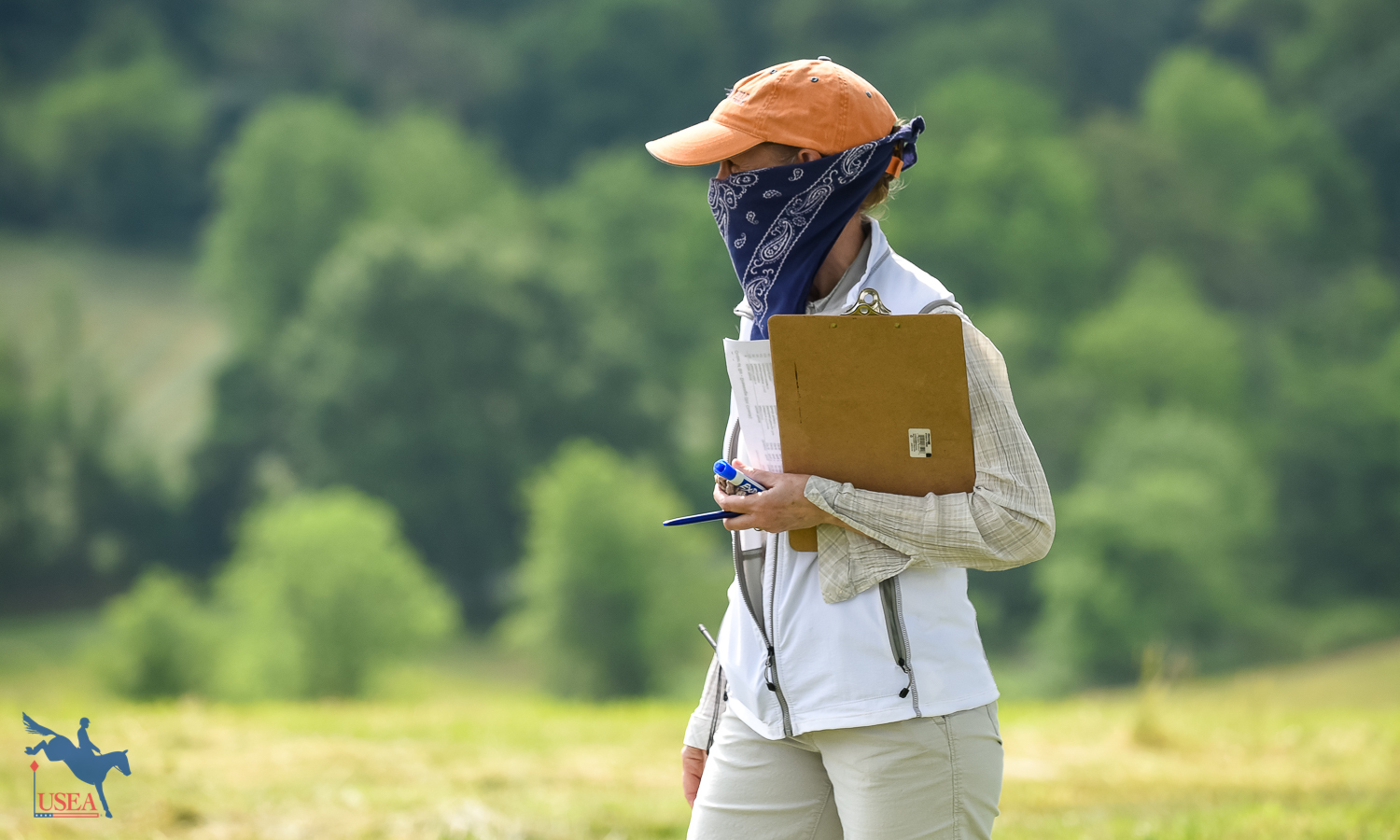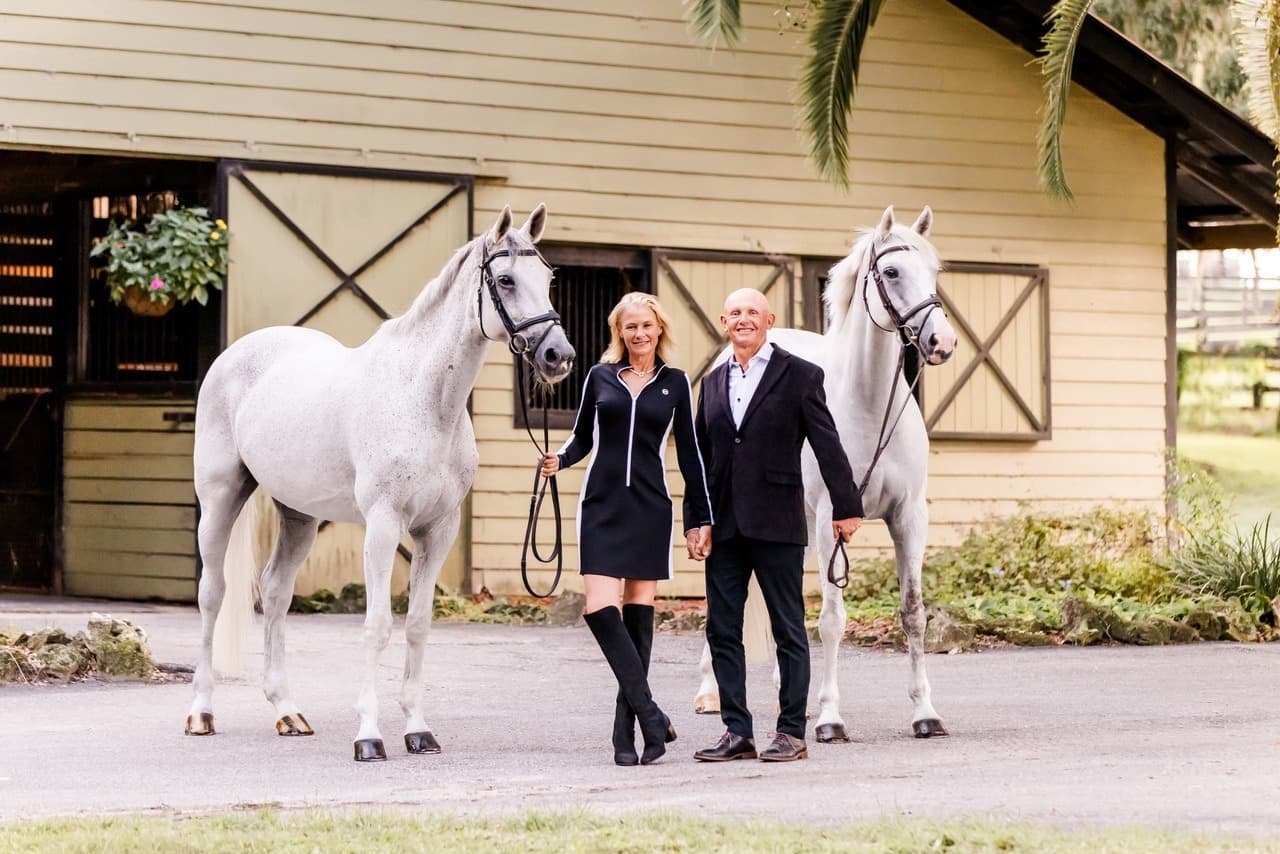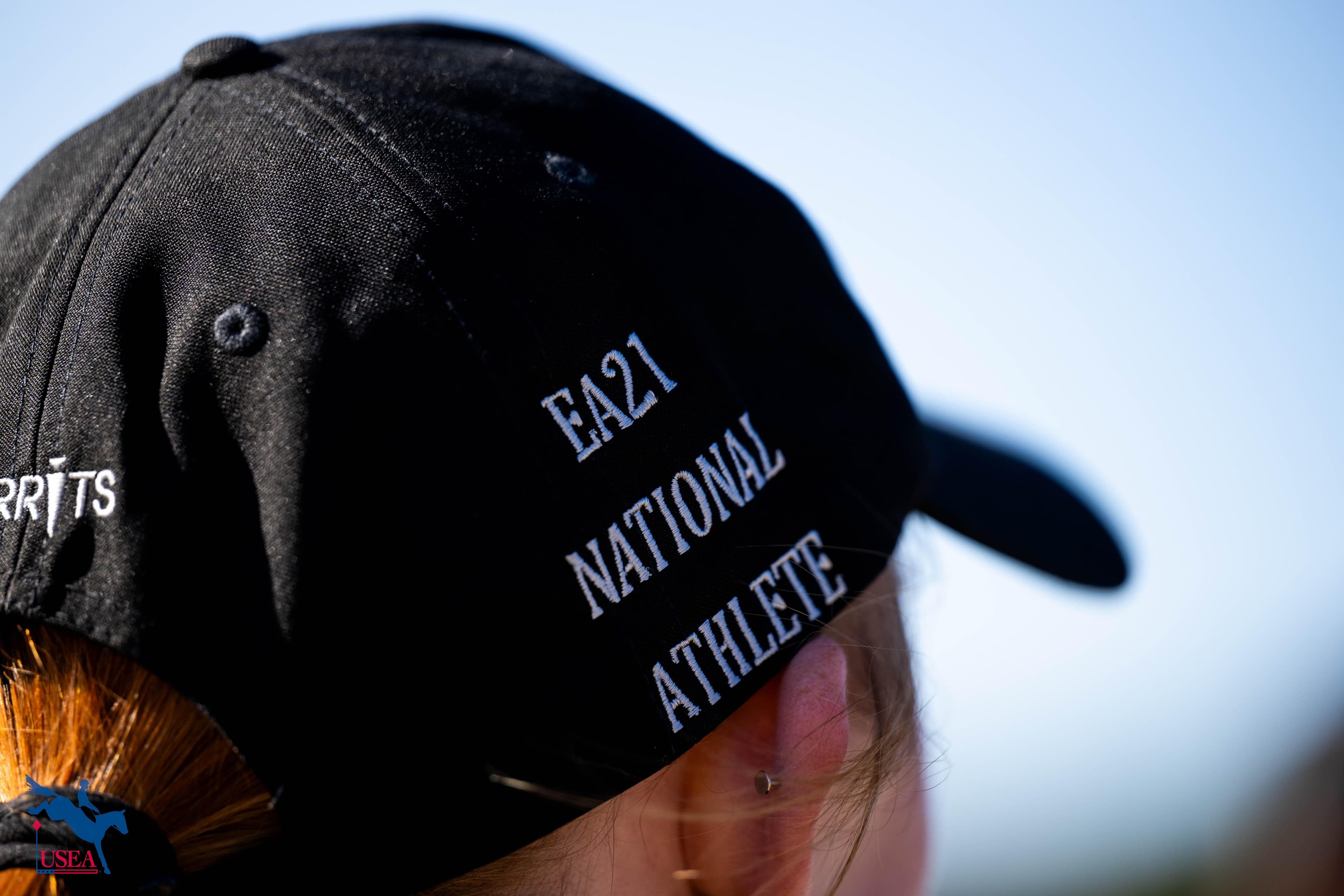Volunteers and Event Organizers Share Tips for Volunteering in 2020

As 2020 has forced competitors to reroute or adjust their competition calendar, volunteers have also experienced several changes of their own. While most volunteers love to volunteer at various events, many have altered their plans to stick within local limits, like volunteer Angie Leihy, or to stick with one venue, like volunteer Leah Fleming.
Many volunteers and event organizers have expertly adapted to the "new normal" of eventing, including the volunteers mentioned above, as well as John Bandrofchak, Jim Newman, David Slage, and the event organizer of Ocala Horse Trials, Emily Holmes. All six of these individuals have provided general tips on volunteering during the time of COVID-19.
Tip #1 is from Angie Leihy: “[As a volunteer], allow some extra time to manage the new procedures in place. [Before the day gets started] I pack all of the usual things but I also add a couple of masks (the strap on my mask broke once, and I needed a backup), hand sanitizer, bottled water, and paper towels to make sure I can keep my hands clean.”
**For the ‘usual things’ that Leihy referred to, please click here to read what to pack for a day of volunteering.
Tip #2 is from Emily Holmes: “I have all of my volunteers bring the face covering they're most comfortable with. I personally like the neck gaiters and disposable masks. As a volunteer, it's best to always have some hand sanitizer on hand as well. [Also] straws for water make drinking with a mask easier.”
Tip #3 is from John Bandrofchak: “Bring your best attitude. When I run warm-up, I always greet [competitors] when they check-in, I use their first names, I ask them how they are, how dressage went and, of course, I always do this with a smile. Competitors pay a lot of money to attend shows you are volunteering at, [and] you are an ambassador of that show. Your performance may be a contributing factor (positive or negative) when they are looking the following year on where to [compete].”
Tip #4 is from Jim Newman: “Wear a proper mask at all times. Eventing is having great success because of their [COVID-19] procedures.”

Tip #5 is also from Jim Newman: “Volunteering is great fun and a very real opportunity if you enjoy the sport. I will listen to people talk around the barn about how great it is to read articles about Phillip Dutton, Lauren [Nicholson], Will Coleman, or Ariel Grald. Well, last weekend at Fair Hill, I ‘started’ Will Coleman and Phillip Dutton in real-time. I also saw many of the best horses in the game doing some pretty amazing things. There are very few sports where that is possible. At the same time, you are spoiled by some really special volunteer coordinators with great food and drink. Most of all, accept that you are always part of a team and everyone is there to help everyone else. The sole purpose is to enhance the sport and make it a safer sport for the riders and participants. This year I have participated as part of a ‘radio net’ as a cross-country finish timer or starter in which Brian O'Connor is the controller. [O’Connor] not only serves as an announcer but manages the ‘action’ on course. He always goes out of his way to ensure that there are [volunteers] at the start and finish, and people at start and finish and the 18 fence judges in between. He is probably not aware of it, but at the end of the day, after ‘processing’ 250 horses on course, he has taught a master class in cross-country. You can’t get that back at the barn or reading a magazine article. Volunteering is the best.”
Tip #6 is from David Slage: “Watch the volunteer training videos on the USEA website and study the current USEF and FEI eventing rules for what phase you're working. I think it is important that everyone involved in the sport knows the rules. Try different volunteer jobs to learn all aspects of the sport, make yourself available, and, above all, be flexible (help take some of the workload off the volunteer coordinator).”
Tip #7 is also from David Slage: “For the venues [and event organizers], take care of your volunteers and they will come back. Feed and water them well, give them sufficient time between divisions to take a break, give them a t-shirt or hat with your logo at your big event for the year (good advertising).”
Tip #8 is from Leah Fleming: “[The] biggest tips I have for volunteers are to adhere to the rules of the facility. If they ask you to wear a mask in all public areas, do that. Not following the guidelines puts the eventing facility at risk from being shut down and potentially spreading disease to your fellow volunteers. Print and sign your waivers ahead of the event and don't forget to bring them with you. If you have a fever, cancel your signup; we'll find someone to replace you. If you come anyway and temperature checks are in progress, please don't get angry with the staff that ask you to leave - you know the rules and we can't [make any exceptions]. If spectators are not permitted at the event, please make sure that you spread the word at your barn. No one wants to turn anyone away and we feel as bad as you do. Most everything else runs right about the same. These days, I wipe down my radio and workspace and use my own pens/pencils, whistle, etc. We've also started sending out jump assignments/maps via email so that all the volunteers need to do when they arrive is grab a packet and head out. Any briefings are done via radio once you're in position.”
“My biggest request is that we all be respectful. It's my job to make sure that the facility is allowed to continue operating and that I'm doing what I can to try to help my fellow volunteers, the eventers and their crew and the general public stay safe.”
**The guidelines that each USEA recognized event follows are outlined under the USEF COVID-19 Action Plan.
Thank you to everyone that has volunteered this year!
About the USEA Volunteer Incentive Program
Volunteers are the lifeblood of our sport, the unsung heroes, and the people who make it possible to keep the sport alive. In efforts to recognize the dedication, commitment, and hard work that volunteers put into eventing, USEA formed the Volunteer Incentive Program (VIP) in 2015. In 2017, an online management portal was designed for volunteers, organizers, and volunteer coordinators at EventingVolunteers.com (available as an app for iOS and Android).
Volunteer incentives include national and area recognition, year-end awards with ribbons, cash prizes, and trophies, a top ten USEA Volunteer leaderboard, and a Volunteer of the Year award which is given to the volunteer who tops the leaderboard by accumulating the most volunteer hours over the USEA competition year. Click here to learn more about the USEA Volunteer Incentive Program.
The USEA would like to thank Sunsprite Warmbloods for sponsoring the Volunteer Incentive Program.














